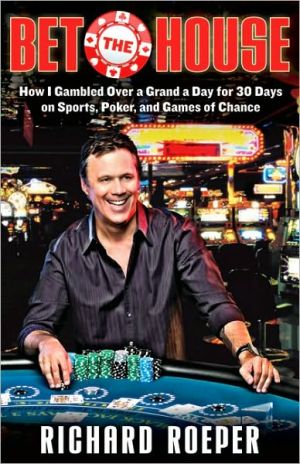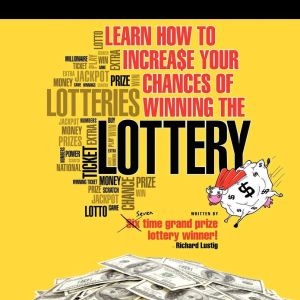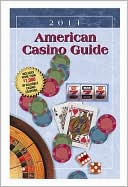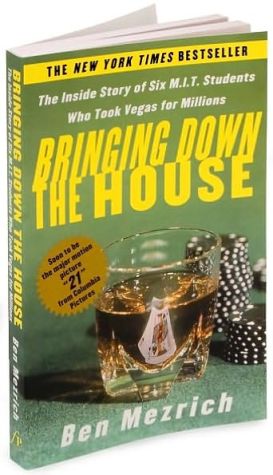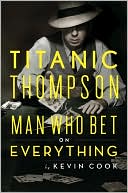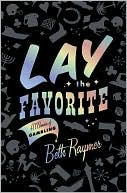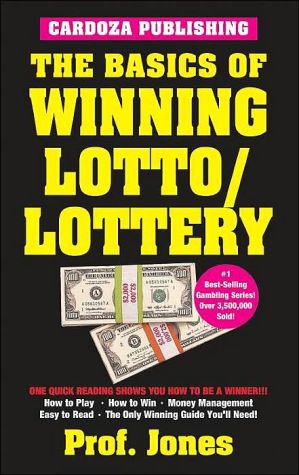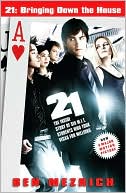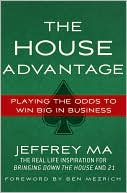Bet the House: How I Gambled Over a Grand a Day for 30 Days on Sports, Poker, and Games of Chance
Over 30 days in early 2009, Richard Roeper risked more than a quarter-million dollars on practically every method of gambling currently available in America. Bet the House chronicles his wild journey. Follow Roeper as he travels from celebrity-filled Vegas tournaments to podunk dog races, negotiates illegal sports bets with shadowy bookies, trolls overseas-based Internet gaming sites, wagers against a radio comedian, haunts blackjack tables, and flips coins at a bar. As the wins and losses...
Search in google:
Over 30 days in early 2009, Richard Roeper risked more than a quarter-million dollars on practically every method of gambling currently available in America. Bet the House chronicles his wild journey. Follow Roeper as he travels from celebrity-filled Vegas tournaments to podunk dog races, negotiates illegal sports bets with shadowy bookies, trolls overseas-based Internet gaming sites, wagers against a radio comedian, haunts blackjack tables, and flips coins at a bar. As the wins and losses mount, you’ll share his suspense over that next big bet, the one that might, just might, get him back to black by the end of his odyssey. Bet the House also explores: • What it’s like to bet money you don’t have, knowing that if you lose, you’re in some serious trouble.• The worst referee’s decision in the NFL in the last decade, and how it cost the author thousands of dollars.• The time Roeper won more than $20,000 on a single horse race. • Why the slots are such a bad play, why Roeper hates baccarat, and why state lotteries are worse than any numbers game run by the mob.• The 10 best gambling movies of all time. The true national pastime isn’t baseball or football or basketball. It’s gambling--on fantasy football, March Madness, poker, slots, the lottery, keno, church raffles, bingo, and more. Bet the House recounts with humor and pride the ultimate thrill ride of one American gambler. Publishers Weekly Chicago Sun-Times columnist Roeper (Sox and the City) was inspired by filmmaker Morgan Spurlock's documentary Super Size Me to do his own 30-day challenge: “every day for 30 days, I would risk at least $1,000” gambling. From craps and blackjack, to slots, off-track betting, poker tournaments, online poker, the lottery, and more, he gives a day-by-day account, with wins and losses, such as “Day 8: Bankroll: + $4,980.” Shuffling a full deck of anecdotes, movie references, and memoir moments, Roeper deals in such topics as gambling addiction, high rollers, casinos of choice, Indian gaming facilities, celebrity and charity poker tournaments, luck vs. strategy, and sports upsets. Amid dreams and desperation, he recalls, “I have had insane fun and I have experienced freefalling, dangerous lows in various gleaming casinos on the Strip.” As a film critic, Roeper is certainly aware that his entertaining book could easily be adapted into an equally entertaining high-stakes movie. (Apr. 1)
BET THE HOUSE\ How I Gambled Over a Grand a Day for 30 Days on Sports, Poker, and Games of Chance \ \ By RICHARD ROEPER \ CHICAGO REVIEW PRESS\ Copyright © 2010 Richard Roeper\ All right reserved.\ ISBN: 978-1-56976-247-9 \ \ \ Chapter One\ Day 1\ Status: Dead even\ "A gambler is nothing but a man who makes his living out of hope." -William Bolitho\ Go Radford! Beat North Carolina!\ Well. Let's not kid ourselves. We all know Radford isn't going to beat UNC. I just want them to lose by 26 or fewer points. That would not constitute a "moral victory." It would constitute an "I'm really glad I bet on Radford" victory.\ Oh, yeah, I'm a big Radford fan, from way back when. Like six minutes ago. Not that I'm entirely sure where Radford is located (I'm thinking it's Virginia or maybe Alabama), what their team nickname is (I'm thinking they're probably not the Radford Radicals, but they could be the Radford Rebels or the Radford Renegades), or whether it's Radford U., the University of Radford, Radford College, Radford A&M, or the Radford School of Beauty and Hair Design. I just know I need Radford and a bunch of other college hoops teams to beat the spread.\ Now, this doesn't mean I don't appreciate how cool it must be for Radford to be in the NCAA, going up against one of the most storied programs in all of sports. Nor does it mean I wouldn't love it if Radford somehow pulled off the upset of the decade. If they were leading in the second half, fans across the country would be texting, Twittering, calling one another, saying, "Are you watching this game!" Even when I'm betting, I maintain my fan's interest in the game. But I can't pretend I woke up this morning with any keen insights into the Radford basketball program. I just believe in taking huge underdogs in the early rounds, because the spread is often stretched in favor of the powerhouses.\ So approximately three minutes into my monthlong adventure, I'm breaking the law.\ This is the thing about gambling in America: it's a maze of inconsistencies. You start talking about what's legal and what's illegal and what falls somewhere in between, and you'll wind up sounding a little like Samuel L. Jackson describing Amsterdam's marijuana laws in Pulp Fiction. ("It's legal but it ain't a hundred percent legal ... it's legal to buy it, it's legal to own it, and if you're the proprietor of a hash bar, it's legal to sell it....")\ Across much of the country, you're encouraged to play the lottery and you can bet on horse racing. It's pure gambling-you're risking money on which horse can go the fastest around a track, or you're trying to predict which spinning, numbered balls will be spat into a tube-with the odds decidedly stacked against you. Yet it's 100 percent legal.\ In many states, the interstates are peppered with billboards urging you to take the next exit to a nearby casino, where they're offering an all-you-can-eat buffet of food, as well as an all-you-can-bet smorgasbord of gambling opportunities: "The Loosest Slots in Connecticut!" "More Poker Tables Than Any Casino in the Midwest!" "We'll Take Your Money with a Smile!"\ Although I think I just imagined seeing that last one.\ Yet if you're hosting a basement poker tournament, or if you've got a couple of cash video poker games in your corner tavern, or if you're placing or taking bets on the Super Bowl-well, sir, you are a scoundrel and an outlaw, and local and federal authorities can and occasionally will break down your door, confiscate the evidence, put you in cuffs, and haul your ass to the station, where you'll be fingerprinted and booked like a common criminal. Oh, and by the way: they've given your name to the local media, because they love to publicize the ongoing effort to combat the scourge that is illegal gambling.\ The governmental hypocrisy on gambling is breathtaking. Consider my lawbreaking activities on a Thursday morning in March in Chicago: Today is the first day of the NCAA Division I men's basketball tournament, a.k.a. March Madness. For the basketball junkie, it's one of the most exciting sports days of the year, with the first games starting before noon and the last games ending after midnight. From New York to Ohio to Texas to California, it's wall-to-wall college hoops.\ Every year in mid-March, tens of millions of Americans fill out their brackets in the hopes of winning the local office pool or maybe even one of those ginormous contests offered by ESPN, Yahoo!, Sports Illustrated, and CBS, among others. Whether you're a hardcore hoops junkie who knows about the bench strength of Sienna or a casual fan who picks North Carolina because powder blue is your favorite color and it makes you smile and twirl about, you cough up your 10 bucks, you fill out your brackets, and you spend the next three weeks tracking your progress.\ Usually the guy running the pool is an anal-retentive superfan who sends out periodic updates listing every participant's point totals and the maximum number of points they're eligible to accumulate. By some great cosmic rule, the anal-retentive superfan never wins.\ The big online pools have a computerized scoring system, capable of spitting out the rankings of literally millions of entrants in frighteningly timely fashion. No doubt those programs were designed by anal-retentive superfans.\ Over the last couple of days, I've filled out a half dozen brackets. One of my friends has also set up a private, invitation-only pool via CBSSports.com. (CBS is in the middle of an 11-year, $6 billion contract to carry all the NCAA men's tournament games. Yet if an amateur college athlete signs with an agent or accepts a free suit of clothes, that player will be stripped of his or her eligibility.) You get an e-vite, you sign up, you fill out your brackets-and you're ready to compete with everyone else who was invited to join the private pool. It's up to you if you're going to do this for fun or for cash. The CBSSports.com computer doesn't ask questions; it just keeps track of everything for you and your friends, and sends out periodic updates.\ My guess: approximately 1.2 percent of all participants in NCAA pools do so for fun, with no payouts to the winners. The rest of us are doing it for bragging rights and for cash money.\ The CBS site also has their own bracket challenge, open to the world, and they receive literally millions of entries for that baby. One lucky winner out of the two million or more entries will take home a $10,000 prize.\ Ah, but this isn't a gambling pool-that would be illegal and just plain wrong. It works like this: anyone who finishes in the top 10 percent is eligible for a drawing for the 10 grand.\ "NO PURCHASE NECESSARY," state the contest rules. "The 2009 CBSSports.com Bracket Challenge (the 'Sweepstakes') is a competition based on the results of the 2009 Division 1 Men's College Basketball Tournament ... the grand prize ... will be awarded to a randomly-selected participant who is among the top 10 percent of point scorers in this Sweepstakes."\ Get it? If you're running an office pool and you collect $20 from 25 coworkers and dispense cash to the top three finishers, you're breaking the law. (Though it's highly, supremely unlikely the feds are going to come after you.) But if you're a media giant with a multibillion-dollar contract with the NCAA and you conduct one of the world's largest bracket pools, now that's a sweepstakes. Perfectly harmless!\ So silly. Why not award a major cash prize to the one individual who has the best score, instead of lumping the top 10 percent into a drawing? Why not reward the skill (and of course luck) one must possess in order to be the best out of millions of entrants?\ Because somehow that would be against the law, whereas randomly choosing one name out of a pool of the top 10 percent is deemed good ol' All-American Fun. If anyone can explain the logic of that to me, I'm at rroeper@suntimes.com. I'll wait for my answer. I won't hold my breath. Or anything else.\ So if you're wondering if I feel even a twinge of ethical doubt because some of my gambling activities aren't always considered legal by the current laws of the state and the nation?\ Don't bet on it.\ * * *\ For decades it was against the law to bet on sports outside the state of Nevada-but finding a bookie anywhere in America is only slightly more difficult than finding a store where they'll sell you a lottery ticket. (In 2009, Delaware became the second state to legalize sports wagering.) Since I was 16, there's never been a time when I didn't know a bookie or two-or at least somebody who knows a bookie or two. Maybe you're not a sports gambler, and you're thinking, I don't know any bookies. Even if you've never bet on a football or basketball game in your life and you don't know anyone who's a regular gambler, I'll bet you know somebody who knows somebody. If you wanted to bet $50 on a game taking place tonight and you asked everyone in your life if they knew anyone who could help you with that, odds are someone would be able to hook you up. You might not come into contact with an actual bookie, but somebody will say, "I can place that bet for you."\ There was a time when I was betting on sports far too frequently, with all too predictable results. Hurts in the chest a little just to think about it. I remember sneaking upstairs during a huge Thanksgiving party and snooping around until I found a bedroom with a television set, so I could check on the game. (This was in the pre-Internet, pre-cell phone application days. Now you can check scores on your mobile device without leaving the room.) Less than two minutes to go and my team is driving for the win-and the win against the spread. Dinner is about to be served and people are calling my name, I'm sure it's a warm and fuzzy scene downstairs-and I'm cursing under my breath because there's another timeout on the field. There's no way I'm heading down to dinner until this thing is settled.\ Finally my team lines up for an attempt for the game-winning field goal, and I stand a foot away from the screen with my hands on my knees, trying to will that ball through the uprights-and it's not even close. The ball skips harmlessly through the end zone, having landed a full five yards shy of the mark. I lose. Now I've got to sneak back downstairs and enter the dining room all smiles, as if I didn't just drop $200 I don't really have on this fucking Turkey Day game.\ That was a couple of lifetimes ago. I learned, and then I learned again, and then I learned yet again-you can't beat the bookie. In recent years I've restricted my sports event wagers to the casual fan staples: the Super Bowl; a couple of low-stakes wagers while in Vegas and we were all betting the same team so we could scream at the big screen like maniacs; a bet on my Chicago White Sox when they were in the World Series. But in prepping for the book, I knew I'd want to bet on multiple games-so I called up an old friend who still dabbles in the occasional sports wager and asked him if the bookie we had back in the day was still in business.\ The bookie-we'll call him Sid, because that sounds more like a bookie's name than Joaquin or Zac or Tila Tequila-has to be close to 60 by now. My old friend introduced me to him about 20 years ago. Sid is married, or at least he was married when I last talked to him seven or eight years back, and he has a couple of kids who are probably out of the house and on their own. He's a college graduate with a full-time, legit business, but he and a couple of partners have been running a bookmaking operation since the late 1980s. They don't take bets from just anyone; all of their clients are people they know or someone who has been brought in by a longtime customer.\ Sure enough, Sid was still in business, and he told my friend he'd be glad to take my action once again.\ We're long past the era in which bookies kept records in notebooks or on slips of paper that would dissolve in water if the cops showed up. Here's how it works in the 21st century-or, at least here's how it works with Sid.\ You almost never have an actual, live conversation with Sid. It's all about the voicemail. (Sid pays cash for disposable phones with prepaid minutes, so even if someone tracked a call, there's no phone bill, nothing that can be traced back to him.)\ You're given two telephone numbers. If you call the first number, you get a recorded message that goes something like this:\ "It's March 30, and here are the morning lines, for news matter only. Pittsburgh is -11 1/2 and 145 against Xavier, Arizona is -9 1/2 and 134 vs. Cleveland State, LSU is -2 and 127 1/2 against Butler ... the next update is at 2 P.M."\ The first number in the above example is the basic point spread. In other words, Pittsburgh is giving, or "laying," 11 1/2 points to Xavier, meaning if you bet on Pitt, you have to win by 12 or more points to cover the spread. If you take Xavier, you're in effect winning by a score of 11 1/2-0 before the opening tipoff. Even if Pitt wins 81-70, you're the winner because Xavier covered the 11 1/2 point spread, losing by only 11. (This is why you see fans in sports bars or at games hooting and hollering near the end of a contest that seems to be well in hand for one team. It's not the hot wings or the beer that has 'em screaming. The point spread is still in question.)\ The second number is the over/under. I don't know who invented the over/under, but it's been around since long before I started gambling, and it was no doubt dreamed up by a bookie looking for another way to separate the bettor from his or her money, and as such it's a stroke of genius. The over/under is the total number of points scored by both teams. (You can also make over/under bets on an entire season-e.g., the over/under on the Cubs for the 2009 season was 91 wins. They finished 83-78, so if you took the "over," you lost.) If you don't have a rooting interest or a strong feeling about either team in a game, there's always the over/under. Take the "over" and you spend the whole game cheering for both teams to score like crazy; take the "under" and you're like the anti-Noonan faction in Caddyshack, rooting for everyone to "Miss! Miss, miss, miss, miss, miss!"\ Once you get the latest lines from the recorded message, you make your picks and you call a second number. After the tone, you state your name, or your alias, or the numeric code you've been assigned-and you give your picks.\ Let's say my code was 7777. (It wasn't. But let's say it was.) I call the hotline and say, "This is 7777. I'll take Pittsburgh for a dollar, the 'under' in the Pitt game for a dollar, and I'll take two dollars on LSU."\ A "dollar" is a hundred dollars. If I wanted to bet $1,000, I'd say a "dime." It's all very Nathan Detroit.\ Sid, or somebody working for Sid, periodically checks the messages and then keeps track of the wagers through whatever means he uses-probably some computer program disguised as a fantasy league. No doubt he knows the exact balance for each of his 60 or so clients. No doubt he also maintains that information in a way that leaves little or no evidence he's conducting a bookmaking operation.\ Of course, there has to be some human contact at one key juncture-when it's time to pay up or get paid. It's not as if you can settle your debt by giving Sid your American Express number, though I'm sure there are some bookies that use PayPal or some other electronic method to make and take payments. Nor are you going to write a check or get paid by check. Bookmaking is still largely a cash operation. (Unless you're an Internet betting site, and even then they've got a way to make cash play.)\ (Continues...)\ \ \ \ \ Excerpted from BET THE HOUSE by RICHARD ROEPER Copyright © 2010 by Richard Roeper. Excerpted by permission.\ All rights reserved. No part of this excerpt may be reproduced or reprinted without permission in writing from the publisher.\ Excerpts are provided by Dial-A-Book Inc. solely for the personal use of visitors to this web site. \ \
\ Publishers WeeklyChicago Sun-Times columnist Roeper (Sox and the City) was inspired by filmmaker Morgan Spurlock's documentary Super Size Me to do his own 30-day challenge: “every day for 30 days, I would risk at least $1,000” gambling. From craps and blackjack, to slots, off-track betting, poker tournaments, online poker, the lottery, and more, he gives a day-by-day account, with wins and losses, such as “Day 8: Bankroll: + $4,980.” Shuffling a full deck of anecdotes, movie references, and memoir moments, Roeper deals in such topics as gambling addiction, high rollers, casinos of choice, Indian gaming facilities, celebrity and charity poker tournaments, luck vs. strategy, and sports upsets. Amid dreams and desperation, he recalls, “I have had insane fun and I have experienced freefalling, dangerous lows in various gleaming casinos on the Strip.” As a film critic, Roeper is certainly aware that his entertaining book could easily be adapted into an equally entertaining high-stakes movie. (Apr. 1)\ \
